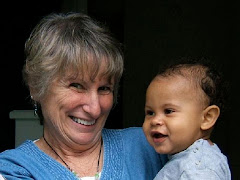Here are some suggestions to make the holidays more peaceful for your family:
1. Window
of Tolerance
Be mindful of your own tolerance level for chaos, mess, unpredictability
and just the overall stress of holiday spending, preparation, drain on your
mental and physical energy. Keep it in
check by not overbooking, not overspending, and most of all keeping your
expectations of yourself always in the forefront of your plans.
Consider your child’s window of tolerance and don’t overplan for him,
don’t keep him up late, don’t use the “you’d better be good or…” routine
because it will only increase the level of stress narrowing the window and
almost guaranteeing a meltdown.
2. Time
In
Instead of putting your child in time out, bring her into you. Let her know it is all too much and you understand. By bringing her next to you, instead of
sending her off by herself to “think about what she has done” at a time when
her brain is unable to thing, you will be helping her to calm. You will be letting her know that you know it
is all too much for her and you are helping to slow it all down.
3. Be
Proactive
Predict when your child might be about to lose it and scoop him up and
suggest getting some air together, even if you are in the middle of a sing
along; even if the turkey has just been brought to the table. If there are three events planned for the
celebration and by the second one, your child is whining and tattling (yes,
even your 14 year old…remember when we stress, we regress) say that you are
calling it a day. Do not use this as a
way of consequenting, but as a loving way of understanding that he just cannot
tolerate another celebration.
4. You
Can’t Always Be There
Keep
in mind that there will be times, that you can’t be where your child is when
her window of tolerance begins to slam shut.
Know that she is doing the best that she can at that moment and so are
you.



No comments:
Post a Comment
I really look forward to both your questions and comments.